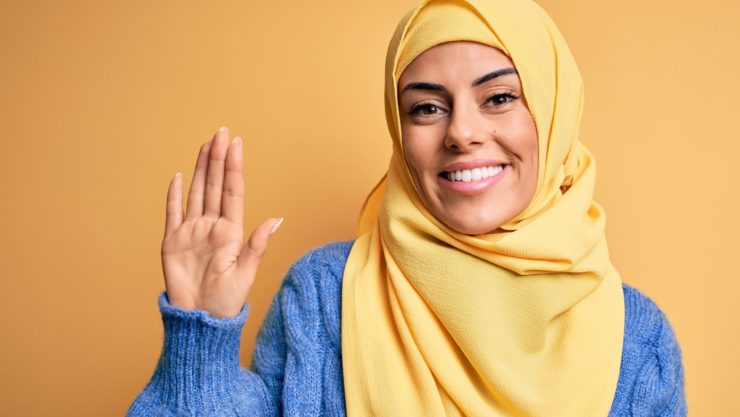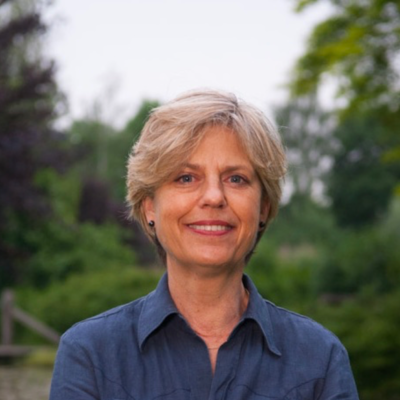Annemeik Schlatmann
”From this moment on we will stop shaking hands”, said prime minister Mark Rutte during the press conference on the Coronavirus on the 9th of March. From that same evening, shaking hands was renounced throughout the Netherlands.
Even though the cause, a life-threatening virus, was disturbing, I immediately realized that this measure would also be a relief for many in the Netherlands, including Muslims. Shaking hands was for them a social practice they had adapted to, due to Dutch social pressure, but which continued to cause a certain discomfort. The kind of discomfort that a general practitioner experienced a few days later and published as an anecdote in newspaper NRC. He wrote that one of his patients, a lady with a headscarf, had entered his medical office that morning with an outstretched hand, and that she had reacted indignantly when he refused her hand. A few moments later, she had said with a laugh, ”Well, now you know how that feels” (weblink).
Except for the arrival of the Coronavirus, the incident as described in the anecdote above was preceded by an integration debate that started around the turn of the century. For decades the Netherlands had been an open and tolerant country. After 2000 it changed into a country where anti-immigration and anti-Islam discourse quickly gained the upper hand. Multiculturalism from the 1980s and 1990s gradually gave way to the call for cultural adaptation or assimilation (Entzinger, 2003 and 2006; Ghorashi, Davis & Smets, 2018; Lucassen & Lucassen, 2015). In this discourse all Dutch citizens, especially those with an immigrant background, are expected to adapt to the dominant norm, adopt ‘modern’ values and views, and show corresponding behavior. Deviating from the Dutch standard, with for example Islamic practices, is often considered a sign of lack of integration or of holding radical views.
The act of handshaking, or rather of not-handshaking by Muslims, became a much-discussed topic in Dutch public discourse since the beginning of the call for assimilation. It first hit the headlines when the Salafist imam Ahmed Salam refused to shake hands with the then Minister of Integration Rita Verdonk in a 2004 in a TV talkshow. In subsequent years, the House of Representatives and schools, among others, have dealt with issues of shaking hands, and lawsuits have been brought up (click here and here). Politicians have also made statements about the importance of shaking hands. In the run-up to the 2017 parliamentary elections Marc Rutte, leader of the liberal party VVD (People’s Party for Freedom and Democracy) emphasized that in the Netherlands it is ‘normal’ to shake hands and that as a member of Dutch society one is expected to shake hands with both men and women.
The arguments brought forward in these controversies and in political discourse is that the handshake is a sign of equal respect for both men and women, and that precisely therefore is also an important part of the Dutch culture (Baumgartner, 2019). Following this argumentation, shaking hands with people of the opposite sex as a public display of respect is necessary for membership in Dutch society. Refusing to shake hands with someone of the other sex is understood as having and showing a lack of respect, which turns someone in an outsider, an ‘other’, someone who does not belong to Dutch society. The culture and religion of those with an immigrant background is imagined as backward and inferior to the western culture (Ghorashi, Davis & Smets, 2018).
This causes a moral dilemma for many practicing Muslims. One of my interviewees, Abbas, expressed this dilemma in one sentence: ”In this country shaking hands is a sign of respect, whereas with us, not shaking hands is a sign of respect”. The difficulty lies in the fact that for those Muslims who want to remain faithful to Islamic norms, shaking hands with someone of the opposite sex is an impermissible act. Having physical contact with a person of the other sex who is not a family member is not permitted according to religious regulation, issued by the religious authorities. This regulation applies to both men and women. The underlying rationale is that immediate skin-to-skin contact might arouse sexual feelings. Hence the religious ruling is not about gender inequality.
For my PhD research, in which I examined the influence of religious regulation on the lives of young adult Shia Muslims in the Netherlands, I conducted interviews with forty practicing young Shia Muslims (weblink).
Most of them told me that the Dutch custom of shaking hands for them is a practice that troubles their mind. They feel caught between Islamic norms and western social practices. Because of the Dutch emphasis on the importance of handshaking, all of those I interviewed had decided to shake hands, albeit many of them did so with a bad conscience. In an earlier blog I have described in detail their different considerations. Each individual tries to find a solution that gives peace of mind. In their negotiations between Islamic practice and Dutch custom these young Muslims take into account the specific context, their good intention and their pursuit to prevent Islam from getting a bad image in the Netherlands.
The Coronavirus has, at least temporarily, put an end to the practice of shaking hands. This raises the question what will happen to this practice once the Coronavirus is over. Some doctors already have said that the custom of handshaking will not return (weblink). Will this be the case? According to Baumgartner, existing practices and gestures cannot easily be transformed, because virtually all members in society know the meaning of the gesture and act accordingly. However, in history greeting gestures were different. People used to greet each other without having physical contact, for example by bending lightly or by taking off one’s hat. Only in the course of the nineteenth century the handshake developed in the common gesture of greeting (Baumgartner, 2019). A transformation of the handshake in another gesture might therefore be possible. From the many different greeting gestures in other cultures we know that there are ways to communicate equal respect without having physical contact.
Is it imaginable that Abbas in the future will say ‘In my country, the Netherlands, not-shaking hands is also a sign of equal respect’? If the Netherlands wants to be a democracy that takes account not only of the majority but also of minorities, it can now show the ability and the will to carve out space for those with other, usually religious, convictions (Baumgartner, 2019; Ghorashi, 2006). All Dutch citizens have by now become accustomed to greeting one another and showing respect in different ways, without shaking hands (let alone kissing). This has created the possibility for a common space for connection and encounter. For this to happen, we only need to continue the situation as it is right now.
Annemeik Schlatmann works as a project coordinator on Religious Matters.
This blog is a part of ‘Dossier Corona’, introduced by Religious Matters in the spring of 2020.
References
Baumgartner, Christoph, (2019), ‘(Not) Shaking Hands with People of the Opposite Sex. Civility, National Identity and Accommodation.’ In: Jonathan Seglow and Andrew Shorten (eds.), Religion and Political Theory: Secularism, Accommodation and the New Challenges of Religious Diversity. London: Rowman and Littlefield International, pp. 119-136.
Entzinger, Han, 2003, ‘The rise and fall of Multiculturalism’, in Toward Assimilation and Citizenship; Immigrants in Liberal Nation-States’, Christian Joppke and Ewa Morawska, Eds., New York: Palgrave MacMillan, pp. 59-86.
Entzinger, Han, 2006, ‘Changing the rules while the game is on; From multiculturalism to assimilation in the Netherlands’, in Migration, Citizenship, Ethnos: Incorporation Regimes in Germany, Western Europe and North America; Y. Michal Bodemann & Gökçe Yurdakul, Eds., New York: Palgrave MacMillan, pp. 121-144.
Ghorashi, Halleh, 2006, ‘Paradoxen van culturele erkenning; management van diversiteit in Nieuw Nederland’, Tijdschrift voor Genderstudies, 2006-4.
Ghorashi, H., Davis, K. and Smets, P., 2018, ‘Epilogue: Reflections on Belonging, Otherness and the Possibilities of Friendship’, Davis, K., Ghorashi, H. and Smets, P. (Ed.) Contested Belonging: Spaces, Practices, Biographies, Emerald Publishing Limited, pp. 379-389.
Lucassen, Leo & Lucassen, Jan, ‘The Strange Death of Dutch Tolerance: The Timing and Nature of the Pessimist Turn in the Dutch Migration Debate’, The Journal of Modern History, volume 87-1, March 2015, pp. 72– 101.
Thumbnail source: Shutterstock via Kraken Images


